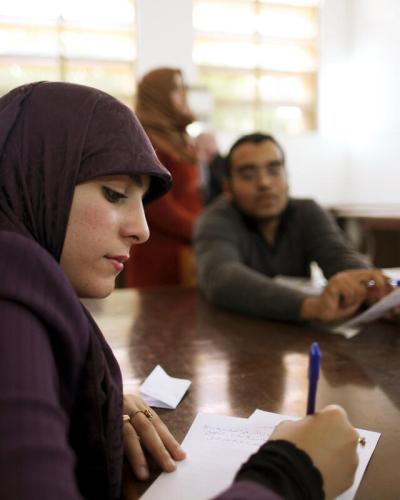Today, the UN Security Council discussed the human rights situation in the Democratic People's Republic of Korea (DPRK) in a formal and public briefing. It is the first time since 2017 that a discussion in this format has been possible in the Security Council. The DPRK's nuclear weapons and missile programmes, banned by numerous Security Council resolutions, pose a threat to international peace and security. The grave human rights situation of North Koreans is also linked with this.
According to a Commission of Inquiry on Human Rights established in 2013 by the UN Human Rights Council for the DPRK, systematic and serious human rights violations continue to take place in the country. In the Security Council, Switzerland reminded the DPRK to respect universally applicable human rights. It also stressed that those responsible for human rights violations must be held accountable. In light of the DPRK's authoritarian government, the Security Council must consider all options to ensure that these violations do not go unpunished.
The range of human rights violations in the DPRK is extensive. "Torture, arbitrary detention and the forced removal of political prisoners to camps are just a few examples of serious and systematic violations. We also recall the DPRK's obligation to put an immediate end to all violations," said Adrian Hauri, Switzerland's Deputy Permanent Representative at the Mission in New York and Chargé d'affaires, at the Security Council.
"The grave human rights situation in the DPRK threatens stability and peace in the region and beyond," Hauri said in New York. The Security Council must therefore work for positive and sustainable change for the North Korean people, he said. Furthermore, Switzerland called on the DPRK to engage in dialogue and cooperation with international actors in order to put an end to the grave human rights violations and their humanitarian consequences.




